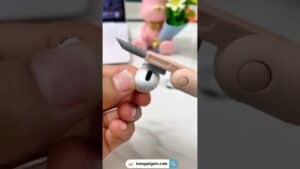So, you’ve decided to modernise your home and make it more convenient and efficient by using smart plugs. Well, you’re in the right place. In this guide, I’m going to show you exactly how you can utilise smart plugs to automate various devices and appliances in your home. By the end of this post, you’ll be able to sit back and relax, knowing that your home is running smoothly and efficiently without much effort on your part. Let’s get started!
Key Takeaways:
- Convenience: Smart plugs offer the convenience of controlling devices remotely, saving time and effort.
- Energy efficiency: Automating your home with smart plugs can help reduce energy consumption by scheduling devices to turn on and off at specific times.
- Cost savings: By managing energy usage, smart plugs can help lower utility bills over time.
- Customization: Smart plugs allow for customized automation, such as setting up different schedules for various appliances and devices.
- Safety and security: Smart plugs can be used to create the appearance of someone being at home, enhancing security when you are away.
Factors to Consider Before Purchasing Smart Plugs
Before you invest in smart plugs for your home, there are a few important factors to consider. These will help you make an informed decision and ensure that the smart plugs you choose are compatible with your needs and lifestyle.
- Compatibility with Smart Home Ecosystems: It’s essential to check whether the smart plugs you’re considering are compatible with the existing smart home ecosystem in your house. This includes checking if the smart plugs work with your voice assistant (such as Google Assistant or Amazon Alexa) and any other smart devices you have.
- Electrical Specifications and Safety Features: When purchasing smart plugs, it’s crucial to consider the electrical specifications of your home. Ensure that the smart plugs are suitable for the voltage and amperage of your electrical system. Additionally, look for smart plugs with safety features such as overload protection and fire-resistant materials to prevent any potential hazards.
Compatibility with Smart Home Ecosystems
When choosing smart plugs, it’s important to consider whether they integrate seamlessly with your existing smart home ecosystem. This includes ensuring compatibility with your voice assistant, as well as other smart devices you may already have in your home. Before making a purchase, check the compatibility specifications to avoid any compatibility issues and ensure a smooth integration into your smart home setup.
Electrical Specifications and Safety Features
As you consider purchasing smart plugs, it’s crucial to pay attention to the electrical specifications and safety features offered. Make sure the smart plugs are compatible with the voltage and amperage of your home’s electrical system to avoid any electrical hazards. Additionally, look for safety features such as overload protection and fire-resistant materials to safeguard your home and family from potential risks. Your safety should be a top priority when selecting smart plugs for your home.
Setting up Your Smart Plugs
Smart plugs are a great way to make your home more efficient and convenient. They allow you to control your appliances and devices remotely, schedule them to turn on and off at specific times, and even monitor their energy usage. Setting up your smart plugs is a fairly straightforward process, but there are a few things to keep in mind to ensure you get the most out of them.
Initial Setup and Installation Tips
When you first get your smart plugs, the initial setup is crucial. Make sure to carefully read the manual and follow the manufacturer’s instructions for installation. Most smart plugs simply require you to plug them into an outlet and connect them to your home Wi-Fi network via a smartphone app. It’s important to choose a central location for the smart plug to ensure it has a good Wi-Fi signal and can effectively communicate with your other smart devices. Additionally, if you plan to use the smart plug with a high-powered appliance, such as a heater or air conditioning unit, be sure to check the plug’s maximum load capacity to avoid overloading it and potentially causing damage. Knowing these tips will help you set up your smart plugs safely and effectively.
Integrating with Smart Home Assistants
If you have a smart home assistant, such as Amazon Alexa or Google Home, you can easily integrate your smart plugs for voice control and automation. This allows you to simply say commands like “Alexa, turn off the living room lamp” or “Hey Google, schedule the coffee maker to start brewing at 7 am.” Integrating your smart plugs with a smart home assistant adds an extra layer of convenience and automation to your home. Just make sure to follow the specific instructions for integrating your smart plugs with your chosen smart home assistant, as the process may vary depending on the brand and model.
How to Use Smart Plugs Effectively
Smart plugs are a versatile tool for automating your home, and when used effectively, they can make your life much easier. Here are some tips for getting the most out of your smart plugs.
Automating Daily Routines
By using smart plugs, you can easily automate your daily routines to save time and streamline your day-to-day tasks. For example, you can schedule your coffee maker to start brewing before you even get out of bed, or set your smart plug to turn on the lights in the evening when you arrive home from work. This kind of automation can make your life more convenient and efficient.
Creative Tips for Advanced Automation
If you want to take your smart plug usage to the next level, consider these creative tips for advanced automation:
- Smart Home Security: Use smart plugs to control indoor and outdoor lighting, creating the appearance that someone is home even when you’re away.
- Energy Saving: Set smart plugs to turn off devices and appliances when not in use, reducing your energy consumption and lowering your utility bills.
- Home Entertainment: Create custom schedules for your TV, sound system, or gaming console to enhance your home entertainment experience.
By exploring these advanced automation options, you can truly make the most of your smart plugs and enjoy a more efficient and convenient home.
Troubleshooting Common Smart Plug Issues
When it comes to using smart plugs to automate your home, you may encounter some common issues that can be frustrating to deal with. Fortunately, most of these issues have simple solutions that can help you make the most of your smart plug setup. Here are some troubleshooting tips to help you navigate through these issues.
Connectivity Problems and Solutions
If you’re experiencing connectivity issues with your smart plugs, there are a few steps you can take to resolve them. First, ensure that your smart plug is within range of your Wi-Fi network and that it’s not obstructed by any barriers. If the issue persists, try rebooting your Wi-Fi router and checking for any firmware updates for your smart plug. Additionally, you can refer to Smart Plugs: 10 Tricks to Modernize Your Home’s Devices for more tips on troubleshooting connectivity problems.
Managing Updates and Technical Glitches
Keeping your smart plugs up to date is crucial for ensuring optimal performance. Make sure to regularly check for firmware updates for your smart plug and install them as soon as they become available. If you encounter any technical glitches, such as unresponsive smart plugs or app issues, try resetting the smart plug and reconnecting it to your network. In some cases, contacting customer support for your smart plug manufacturer can also provide helpful assistance with resolving technical issues.
Conclusion
Now that you have learned how to use smart plugs to automate your home, you can take full advantage of the convenience and energy-saving benefits they offer. By following the simple steps outlined in this guide, you can easily set up and control your smart plugs to schedule devices, monitor energy usage, and integrate with other smart home devices. With the power of automation at your fingertips, you can enjoy a more efficient and comfortable living environment while reducing your carbon footprint. So, go ahead and start transforming your home into a smart, automated space with the help of smart plugs.
FAQ
Q: What are smart plugs?
A: Smart plugs are devices that can be inserted into traditional electrical outlets to make them “smart.” They can be controlled remotely using a smartphone or tablet, allowing you to turn devices on and off, set schedules, and monitor energy usage.
Q: How do I set up a smart plug?
A: To set up a smart plug, simply plug it into a traditional electrical outlet and connect it to your home’s Wi-Fi network using the manufacturer’s app. Once connected, you can start controlling the smart plug remotely through the app.
Q: What can I use smart plugs for?
A: Smart plugs can be used to automate your home in various ways, such as turning on and off lights, controlling small appliances, monitoring energy usage, and setting schedules for devices. They can also be used to make your home safer and more energy-efficient.
Q: Can I use smart plugs with voice assistants?
A: Yes, many smart plugs are compatible with popular voice assistants such as Amazon Alexa and Google Assistant. This allows you to control your devices using voice commands, adding an extra layer of convenience to your smart home setup.
Q: Are smart plugs secure?
A: Smart plugs use advanced encryption and security protocols to keep your data and devices safe. However, it’s important to follow best practices for securing your smart home devices, such as using strong, unique passwords and keeping your software up to date.









